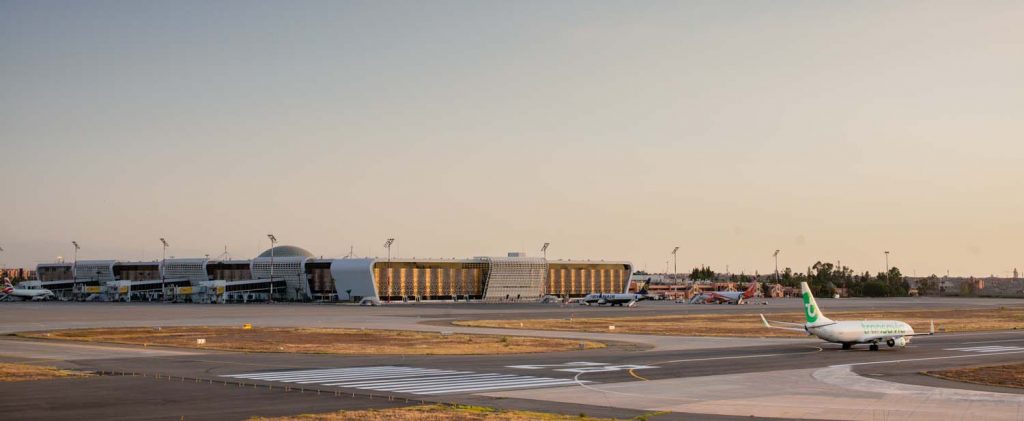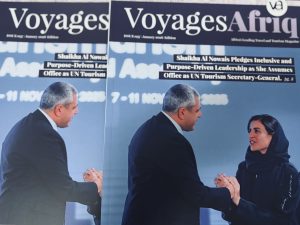Africa’s aviation industry represents a huge market that the continent’s airlines need to exploit more fully, with technology and AI offering the way forward for expansion, regional development experts said Thursday.
“Technology and smart technologies are offering this fantastic opportunity, so let’s make use of AI, let’s make use of the Internet of Things, let’s capacitate our people to revamp and to rethink our industry, to make sure that both our airports and our airlines cater for the very near future,” said Dr. Amani Abou Zeid, African Union Commission for Infrastructure and Energy, during the opening session of a virtual workshop.
The workshop, held on 3 December, was organized by the African Development Bank under the theme, African Aviation Recovery Conference: coordinating an efficient response to the COVID-19 crisis’s effects on the Aviation sector in Africa.
Discussions touched on a number of challenges, including the urgent need of African airlines for government-supported loans, and other financial assistance in the short term, as well as the imperative to ensure that public health is a factor in efforts to build the sector back better and more competitively.
Dr. Fang Liu, Secretary General of the International Civil Aviation Organization, the Nigerian Government’s Minister for Aviation Hadi Sirika and the Bank’s Vice President for Infrastructure, Industrialization and Private Sector, Solomon Quaynor, also made statements.
Sirika called on African governments to embrace full liberalisation of the aviation sector, invoking the Yamoussoukro Decision, which established an arrangement for the gradual liberalization of intra-Africa air transport services. “Nigeria today has all its bilateral air service agreements with the YD and was also among the first ten countries that signed a commitment to implement the Single African Air Transport Market,” he said SAATM, a mechanism of the Yamoussoukro Decision, is an African Union flagship project to create a single unified air transport market in Africa that will advance the continent’s economic integration agenda.
Quaynor emphasised the centrality of the aviation sector to Africa’s long-term goals by referencing three flagship projects of the AU’s Agenda 2063 that aim to advance open skies and closer connectivity: SAATM, The African Continental Free Trade Area, and the African Passport-Free movement of people.
“The air transport system is really at the forefront of all our collective objectives to realize Africa as a single economic bloc of 1.3 billion people with a GDP of almost 3 trillion dollars, for which we want to begin to really focus and increase trade among ourselves, as well as investment.”
The conference took the form of four sessions discussing the priority needs of airlines and airports aviation services companies, as well as needed policy actions and strengthening the sector’s access to finance.
In a presentation, the Bank Director’s for Infrastructure and Urban Development, Amadou Oumarou, made clear that the sector had been ailing even prior to the onset of the pandemic, plagued by market restrictions and high prices, as well as a poor record of safety and security. Of the 200 airlines the EU had blacklisted in 2016, over 50% were African.
The pandemic’s aviation effects, while felt worldwide, have been sharpest in Africa, Oumarou said, a claim that was backed up by numerous panelists. Nearly 5 million of the continent’s 7 million aviation and tourism industry-related jobs have been lost in 2020, in addition to as much as $15 billion in revenue, half of this to African airlines.
The wide-ranging discussions touched on whether African airlines needed to consolidate to be viable, and offered numerous recommendations and solutions. These included adopting aircraft leasing and other innovative practices to cut costs and build efficiencies, strengthening freight operations, which have been less hard hit than passenger traffic, and seizing direct opportunities presented by the imminent need to distribute COVID-19 vaccines across Africa.
Underpinning much of the discussion was the need to make public health and security a central element of the post COVID-19 recovery, as a path to restoring confidence.
A key takeaway was the urgent need for coordinated action among the sector’s actors, including governments, aviation authorities and multilateral stakeholders such as the Bank.
“The time is now. All of us who have really been working on upstream issues such as SAATM, the World Bank, ourselves, the AU and others, now is the time to really pool our advocacy and resources to make this happen once and for all because if we continue to operate as a federation of 54 states as opposed to an integrated market, our economies will continue to be sub-optimal,” said Quaynor.
Source: AFDB







